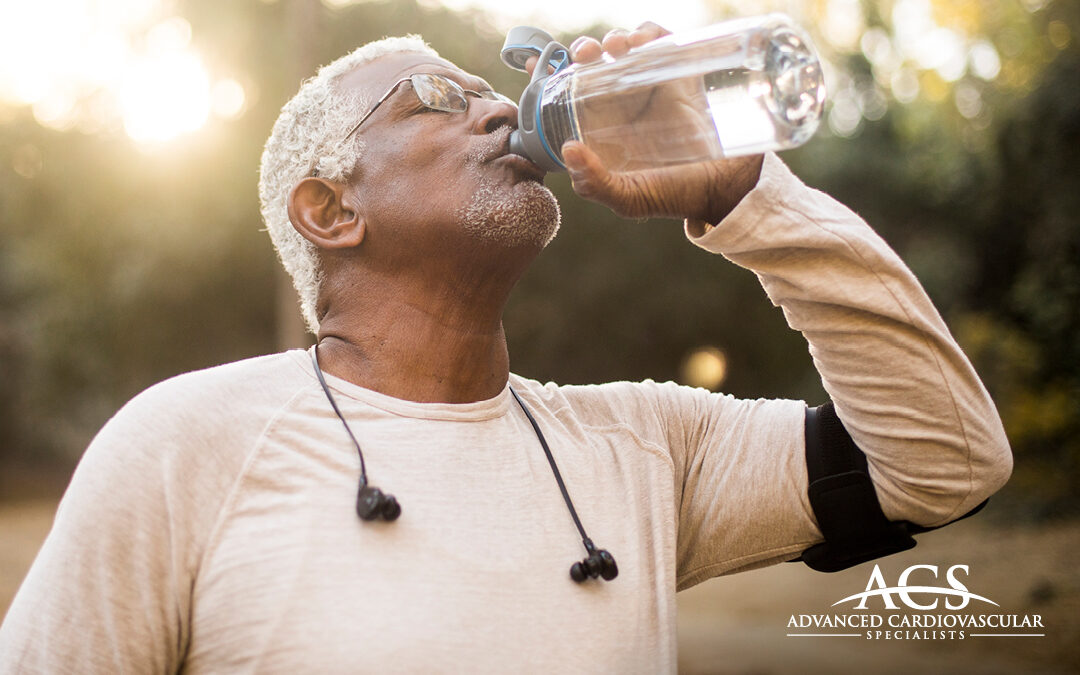Keep Cool and Protect Your Heart
As the temperatures rise, so does the workload on your heart. During hot weather, your heart has to work harder to control your body temperature. While this extra demand generally does not pose problems for healthy people, the additional stress on the cardiovascular system can have serious risks for patients with heart conditions.
The human body controls temperature in two ways: by radiating heat and by sweating. To radiate heat, your body simply circulates more blood. Your cardiovascular system can circulate two to four times as much blood every minute on a hot day than a cool one, which means your heart has to pump harder and faster. Your body will also start sweating to cool you down, which can lead to dehydration and a drop in blood pressure.
This extra burden on the heart, coupled with dehydration, can lead to serious risks for people with cardiovascular conditions. That’s why it is particularly important for people with heart problems to take extra precautions to stay cool in extreme heat. Here are our top tips:
Don’t Overdo It.
Physical activity in the heat will cause your heart rate to increase even more, which can overstress your heart. It can also increase your risk for dehydration and heat exhaustion. The best way to avoid overexertion in hot weather is to undertake outdoor exercise or physical labor in the morning or evening when the temperatures are cooler. If you are committed to your exercise regimen, another option is to workout in an air-conditioned space or a swimming pool.
Chill Out.
Air conditioning is the way to go in hot weather, and you should be aiming to spend as much time as possible in a cool-air environment. For those without air conditioning, taking cool showers or applying cold compresses to your skin can help. Although, the best option (if you are able) is to seek out air conditioning.
Stay Hydrated.
Make sure you are getting enough water to replenish your system from all of that perspiration. Drinking adequate levels of water is imperative, especially for those with other medical conditions that may increase the risk of dehydration. Avoid sugary, caffeinated and alcoholic beverages, as they can contribute to dehydration. Don’t wait until you are thirsty to rehydrate. Try to drink water and/or electrolyte beverages regularly throughout the day.
Protect Yourself.
If you must be outside, do your best to keep cool. Wear lightweight, light-colored clothing and a wide-brim hat. Apply sunscreen regularly. Seek shade when possible to take a break from the heat, and stay hydrated. If you start feeling unwell, immediately find somewhere cool to rest and rehydrate.
Understand the Impact of Your Medications.
Some medications like diuretics and beta-blockers can make it harder for you to control your body temperature during extreme heat. Make sure you speak with your doctor about any medications you are taking and appropriate precautions during hot weather.
In addition to the risk to your heart in hot temperatures, another real danger is heat stroke. While heat stroke can affect anybody, people with cardiovascular conditions are at a higher risk. That’s why it is vital to know the symptoms so that you can take prompt action.
Heat stroke is preceded by heat exhaustion, which is characterized by nausea, fatigue, dizziness/fainting and clammy skin with sweating. If it progresses to heat stroke, it becomes a medical emergency.
The symptoms of heat stroke include:
- Headache
- Dizziness
- Hot, dry, red skin without sweating
- Fast heartbeat
- Shallow breathing
- Nausea and/or vomiting
- Confusion
- Seizures
- Unconsciousness
With simple precautions, you can enjoy your summer and keep your heart safe. If you have any concerns about your heart health, call us at (318) 798-9400 to schedule an appointment today.

